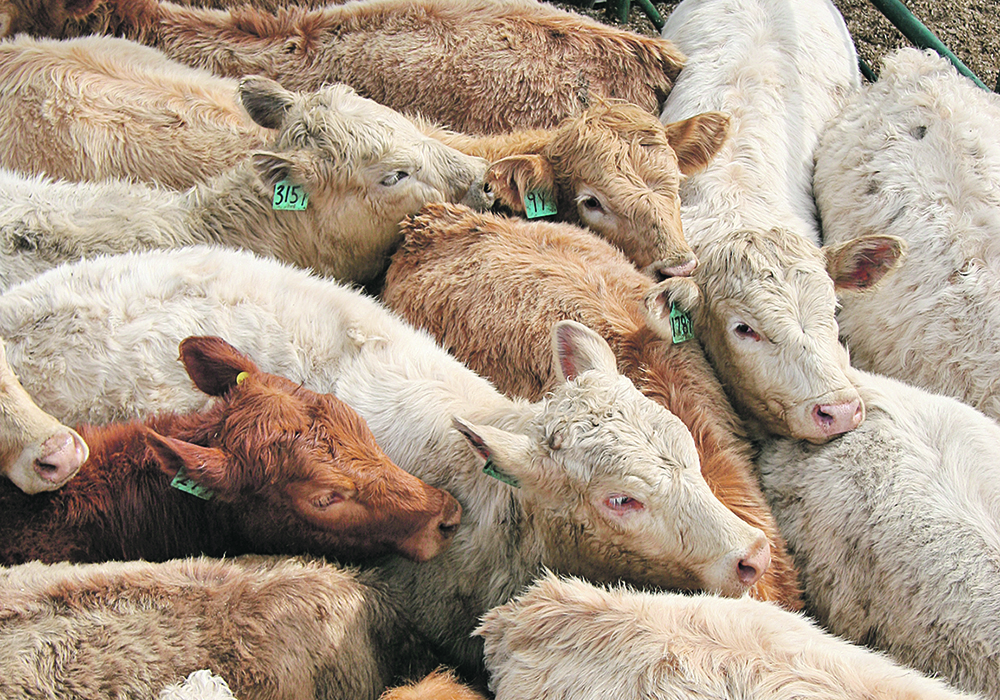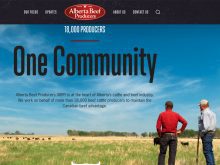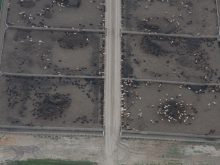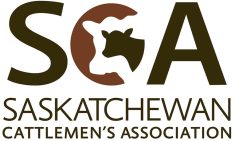CALGARY — Alberta Beef Producers is going to take another run at making its checkoff non-refundable.
Members passed a resolution at its recent annual meeting directing the organization to take steps to move away from a refundable checkoff.
Related stories:
- Alta. beef producers reduce CCA contribution
- ABP ponders cut to CCA funding
- ABP check-off refunds jeopardize work
Read Also

Canadian Food Inspection Agency extends chronic wasting disease control program consultation deadline
Date extended for consultation period of changes to CWD program
“It’s ABP building confidence in all producers across Alberta that it’s the right thing to do so that everybody is paying their fair share, and that all producers are supporting the efforts of the industry,” said general manager Brad Dubeau.
He emphasized there is no timeline for the implementation of the resolution, which will require several steps, including extensive consultation before holding a plebiscite of ABP members. The resolution’s approval during ABP’s recent annual general meeting simply allows it to be placed within the organization’s policy manual, he said.
The meeting was held as part of the Alberta Beef Industry Conference in Calgary. An annual checkoff of $4.50 per head is set aside by beef producers from the sale of cattle, which includes a non-refundable mandatory national levy to support initiatives such as the Beef Cattle Research Council.
ABP members have been allowed to apply for refunds since 2009 for all or part of the remaining portion, which comprises an ABP service charge. Although it can add up to many thousands of dollars for large cattle operations, Dubeau disagreed that any segment of the beef industry, such as feedlots, can be singled out.
“I think we will work with industry and other associations, and we will continue to explore what the right path is… That’s all a part of the process of uniting the industry — talking to each other and developing what might be acceptable for producers — but I would suggest there will always be some that would prefer that it is a refundable organization.”
The resolution said checkoff funds are used to lobby governments, pay for research and promote beef to consumers. It said ABP should take the necessary steps to return to a fully funded industry, resulting in mandatory checkoffs.
Almost half the check-off dollars collected from beef producers were refunded in 2021, said then-chair Melanie Wowk. She warned that ABP could be forced to make major cuts to its operations if the situation continued to worsen.
Cattle producers across much of Alberta were hit by heat waves and drought that summer. Wowk said lobbying of the federal and provincial governments by ABP was essential if producers were to receive help under initiatives such as AgriRecovery.
ABP said in 2022 it was considering cutting its contribution to the Canadian Cattle Association by as much $1 million, or about one-third of the national organization’s total funding. The CCA instead approved a new arrangement in 2023 under a three-year agreement that was expected to lower the reduction to about $500,000.
The deal has helped CCA maintain its operations while allowing ABP to invest in more programming for marketing and communications, said Dubeau. ABP will also cut costs by leasing smaller offices, which will result in savings of about $180,000 per year for 10 years starting in 2025, he said.
Dubeau did not have the latest check-off refund numbers Feb. 28 because the refund period from 2023 had not been completed, but he estimated “just looking at it, we’re consistent with the past year.” He expected the full tally likely will be completed in about six weeks.
Dubeau said many beef producers “feel if everybody is paying their fair share and the dollars are kept in the industry, then we have a better ability to defend our industry and our product.”
However, producers voted to retain the ability to ask for refunds in 2018 as part of a plebiscite that saw a low turnout of ABP members, he added.
“There is a feeling that there was not broad enough consultation with producers across the province, so any sort of movement towards the thought of having another plebiscite will be much more extended. There’ll be more time allocated to communicating with producers, but there is nothing being put forward at this point in time that is giving direction on any sort of date.”
Many steps must be taken before deciding whether to hold a plebiscite, which will involve the Alberta Agricultural Products Marketing Council, said Dubeau. There is a lot of background work that must be done because a review of ABP’s plans, which must be held every five years, is slated for 2025, he said.
“And if producers want changes to (ABP), the board and the delegate body, I would suggest, is very open to it. Whether or not ABP, as the commission, looks the same as it does today five years from now is always up for discussion, and so there’s a lot of building before we actually launch to a plebiscite.”
















